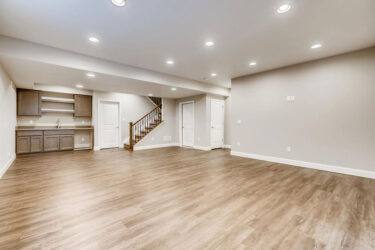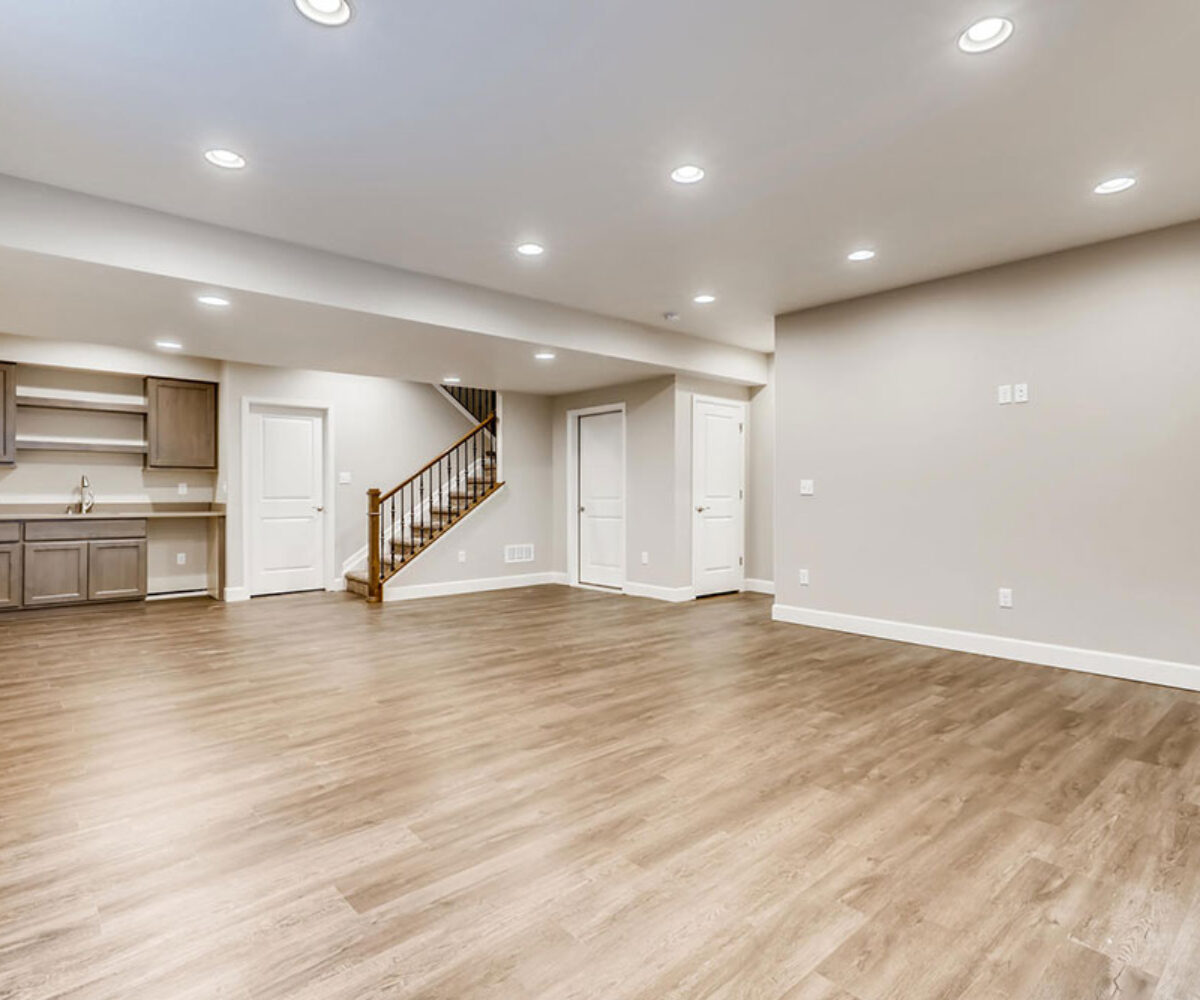EVP Flooring: What’s all the Hype?

EVP flooring consists of 5 layers.
From top to bottom, the layers are as follows:
1. Clear Protection
The topcoat is a clear protective barrier between the flooring and potential dangers. The clear protection prevents scratches and stains, increasing the overall lifespan of the flooring.
2. Appearance
The next layer in EVP is the decor layer, which is what provides the appearance of hardwood. This decorative layer can mimic many styles of hardwood, stone,, or other natural textures.
3. Vinyl Core
After the decor layer comes the vinyl layer. This core layer provides protection against water damage.
4. Stone-Based Core
Underneath the vinyl core, the stone-based core adds stability to the flooring’s overall structure.
5. Backing Layer
Finally, the backing layer of the EVP exists for soundproofing and for gripping the subfloor.
What is the Difference Between LVP and EVP Flooring?
“LVP” flooring refers to “luxury vinyl planks,” which lacks the stone-based layer present in EVP flooring. When trying to decide between LVP flooring and EVP flooring, it usually comes down to the overall durability. EVP tends to be a little sturdier, as well as easier to install. Ultimately, EVP makes a better basement flooring, since basement floors are often subjected to harsher conditions, such as flooding.
How is EVP Flooring Installed?
One of the many benefits of engineered vinyl planks is its easy installation. Much like laminate flooring, EVP flooring snaps together, almost like building blocks. This makes it quick, easy, and affordable to install engineered vinyl planks. With EVP there are virtually no headaches!
Pros of EVP Flooring
1. Genuine Appearance
EVP flooring provides all the aesthetic benefits of expensive hardwood flooring without the price, maintenance, or damage.
2. Easy to Install
As already mentioned, installing EVP is a quick and easy process, which aids in reducing its cost.
3. Waterproof
Basements are particularly susceptible to flooding, which makes water damage a real possibility. Fortunately, EVP protects against water damage with its waterproof layers.
4. Resilient
The protective layer provides an extra measure of durability to your EVP, making it resilient and long-lasting.
5. Styles
One of the biggest benefits of EVP is its versatility. It combines efficiency with style, meaning you can choose from a number of looks–stone, wood, and others.
Cons of EVP Flooring
1. Affordability
Because EVP flooring posts 5 protective layers, it does tend to cost more than LVP flooring and other types of vinyl. In some cases, it may cost more than inexpensive varieties of hardwood. Although engineered vinyl planking costs more than other types of vinyl, it certainly costs less than leading brands of high-quality hardwood.
2. Not Always Eco Friendly
EVP flooring contains PVC, which isn’t known to be particularly environmentally friendly. While EVP flooring does not necessarily have the worst green rating, it doesn’t have the best either.
3. Availability
LVP and other vinyl options tend to be a little more popular than EVP, so the availability of a selected type may be an issue.
How Can We Help?
Averaging a 4.9-star review rating on Google, Sheffield Homes Finished Basements and More can turn your basement into the extra space you need! Call us today for a free consultation in the Denver metro area and in northern Colorado, and let’s see what your basement is waiting to become: 303-420-0056.

